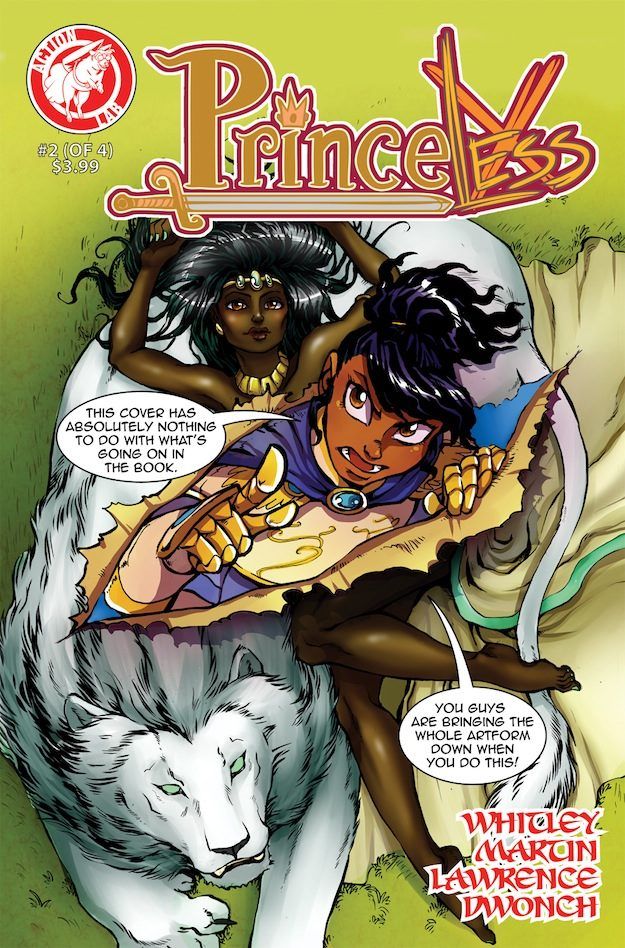Let me start with a confession: I have never understood why comics covers are so different from the interiors. In every other part of publishing, editors try to make their covers broadcast the contents inside, but with comics it's somehow OK to have the interior done by one artist and the cover by another, often with wildly varying styles.
Writer Jeremy Whitley and artist Emily Martin take on that issue head-on with the cover of Issue 2 of the second arc of Princeless. Written for children (but witty enough for adults), Princeless is the story of a princess who refuses to go along with the standard paradigm of being locked in a tower and waiting for a knight to come along and slay her dragon so he can marry her.
Whitley and Martin apparently aren't going along with the standard paradigm, either. Their cover challenges a couple of comics conventions, both making the characters extra-sexy and having a cover image that has nothing to do with the story inside. In a recent post, blogger Rob McMonigal applauded them for making a statement but questioned whether a children's comic is the appropriate place to do it. After all, the statement is really about direct market comic books, and children aren't a big part of that audience.
I'm curious how parents who have been used to giving this book to their kids explain what this cover means. It's not directed at kids, certainly, but their parents, who now might hesitate to buy the book so they don't have to explain why a mostly naked teenager was the "original" cover drawing. I also wonder how this is going to play to the library crowd, where the slightest thing can remove an otherwise good book from the shelves.
Whitley responded in the comments section, saying,
This cover is aimed for the comic book buying crowd and will be in the hands of those who buy floppy books. Therefore, if you're in a comic book store, it's pretty easy to point to an example of what the cover is talking about...which is of course the point.
That won't be the cover for the trade, he adds, and that's the edition the library buyers (and most parents as well) will see.
Anyway, this mockery of comics conventions should come as no surprise to Princeless fans; issue #3 of the first mini-series included a lighthearted discussion of women's costumes in comics, and their general impracticality. (When I was an Eisner judge, we liked that issue so much we nominated it for Best Single Issue.) Much of this will sail right over the heads of the younger readers, but it gives adults a reason to read — and chuckle.


